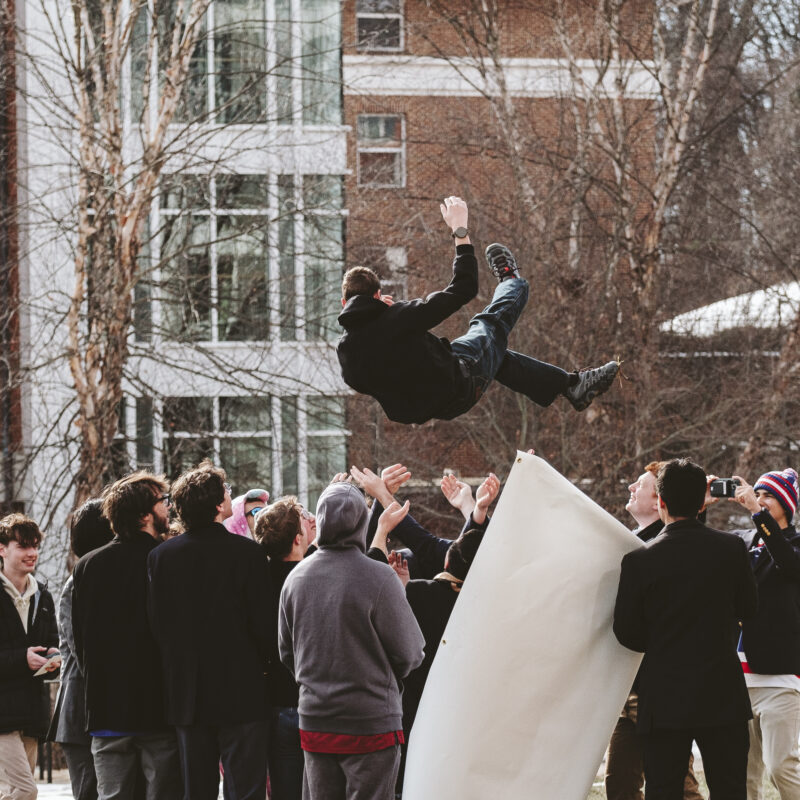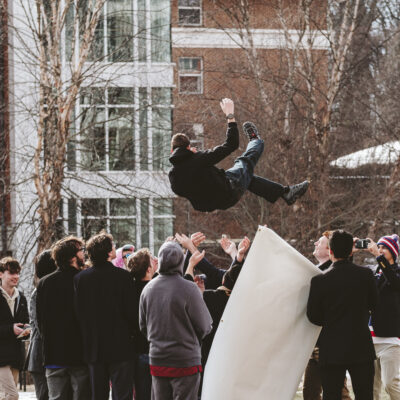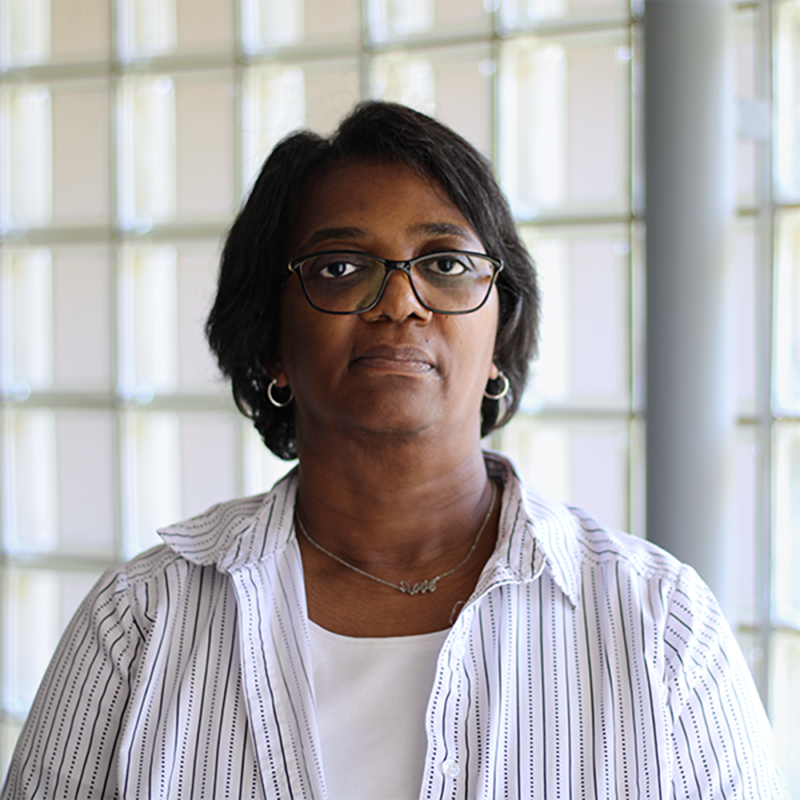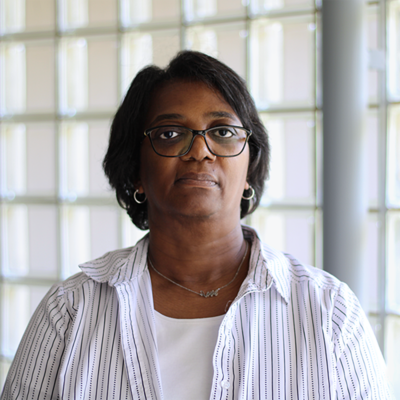
Three seats are up for grabs on Charlottesville City Council because Mike Signer, Kathy Galvin, and Wes Bellamy are not running for re-election. (Photo: Eze Amos)
There are three open spots on Charlottesville City Council this year and three candidates who’ve won the Democratic nomination, usually a virtual guarantee of being elected. But three independents are still in the race, and as Nikuyah Walker proved with her victory in 2017, they can’t be discounted.
We asked each of the candidates the following questions: What steps need to be taken to achieve carbon neutrality in Charlottesville by 2050?; What avenues do you believe the city should take to combat the affordable housing crisis?; How far along do you see the city in the healing process following the white supremacist riots in August 2017?; and What would you want to be able to point to at the end of your term as something City Council accomplished? Here’s what they had to say:
Sena Magill (D)
Owner of Hatpindolly Vintage
Age: 47
Born: Birmingham, Alabama
Local resident: 40 years
“I’m doing this because it’s my home.”
On carbon neutrality:
We need to be looking at power-purchase agreements so that we can put solar [panels] affordably on all municipal buildings and schools. [We organize] a collective of homes that can buy into this so that they can get solar on their roofs as a power-purchase agreement. And what that is, is a company that owns the panels, and [the residents] are buying the electricity from that company…supporting the solar economy, and reducing the coal usage and carbon footprint.
On affordable housing:
We have to figure out how it is we’re going to keep our working class here—our city workers, our firefighters, our nurses, our care workers…and we’ve got to make sure it’s also quality housing. [One of my proposals is] a land strike fund, where you put like $2 million aside…for when a property comes available, the city can purchase it and hold it until a nonprofit can get its [finances] together to then purchase that from the city and keep it in affordable housing.
On the city’s healing process:
There’s still work to be done…The majority of our city suffered PTSD, different levels of it…This isn’t going to get healed until the city proves to people that it listened and is following through on its promises. Trust is given usually at the onset but once trust is broken, it takes a lot of time to re-heal.
On what she hopes to accomplish:
Really getting in place a transit system that works with Albemarle County, UVA, [and] surrounding counties…We’ve [also] adopted this great climate change goal in the city, but we need to then put into place a policy to enforce that goal…[And I want] the people in our city to believe council is going to listen to them.
Michael Payne (D)
Affordable housing activist
Age: 27
Born: Washington, D.C.
Local resident: 26 years
“I want to take a community-organizing approach to City Council.”
On carbon neutrality:
Residential, business, [and] transportation are some of the biggest areas to create specific action plans around…creating a regional transit authority is key…the Charlottesville Climate Collaborative has an initiative they’re working on to reduce emissions in homes…there’s [also] a Better Business Challenge in the city that City Council can promote and be a part of.
On affordable housing:
There’s no silver bullet, it’s a series of policies that are needed. I think the fundamental problem is the fact that, as a city, we’re landlocked in about 10 and a half square miles. We don’t have land to grow into and we’re experiencing both population growth [and] this cycle where rising land prices lead to speculative investment…So in terms of what the city can do…investing in redevelopment of public housing…finishing its affordable housing strategy [and] zoning reform.
On the city’s healing process:
There’s many community members still dealing with unpaid medical debts [and] injuries both physical and mental. The national media attention of this event has waned, but for many community members, they’re still struggling…I do think as a community we’ve been healing and we’ve been getting to a better place, but…we have to take seriously looking at creating real structural transformational change here locally [that] changes outcomes.
On what he hopes to accomplish:
No. 1, that we’ve made the commitment to begin the redevelopment of public housing process in order to provide decent conditions and wealth-building opportunities to our public housing residents. No. 2, that the city has finished its affordable housing strategy and begun to implement it and has a clear approach for how they prioritize and strategically make investments to create affordable housing. And No. 3, that we have created plans for how to achieve our emissions target reduction goal.
Lloyd Snook (D)
Trial lawyer
Age: 66
Born: Plainfield, New Jersey
Local resident: 58 years
“I’ve got experience with every major issue that’s important to Charlottesville right now.”
On carbon neutrality:
There is no one answer, there are about 50 answers and they all need to get progress on, [but] there is much more carbon being used in homes and business than by government…Ultimately, what we need most to do to accomplish that goal is to be able to influence the home and industrial uses.
On affordable housing:
I am the only candidate who has tried to put any numbers on specific things that might be done…We need to build where we can [and] more building will happen, but we’re not going to build our way out of this problem…It’s been estimated that if we could just speed up the process [at Neighborhood Development Services], we could make the process for getting accessory dwelling units approved faster, cheaper, easier all the way around and then promote it.
On the city’s healing process:
The analogy that I use is to say that August 12 was basically the ringing of a bell, and bells continue to ring for a long time, and the vibrations and reverberations persist. We’re still seeing some of that…A lot of the realizations that have taken place since that time were news to folks, particularly white people, largely because they had never been forced to confront some of the history, [and] I don’t think we’ve got a consensus yet on what our response should be.
On what he hopes to accomplish:
We have moved forward on the buildable portions of the affordable housing…That we have gone through this backlog of reports that we haven’t been able to do anything about; that we’ve finished the revision to the city code [and] the zoning code; that we have finished the comprehensive plan and we’ve got a meaningful plan for affordable housing at all levels…Simply: We’ve finally caught up to what we were supposed to have been doing all along.
Bellamy Brown (I)
Student at UVA’s Sorensen Institute for Political Leadership
Age: 40
Born: Charlottesville
Local resident: 15 years (left at age 14; moved back in 2018)
“I’m a service-oriented leader.”
On carbon neutrality:
The low-hanging fruit are LED lights around the city; the electric buses that are out there; [and], as they’re building and developing the infrastructure, obviously doing that in a way that takes into consideration the carbon footprint…For me, there’s no real plan and I think that’s been with a lot of policies throughout. I want action-oriented stuff and those are the low-hanging fruit I think we can take to get there.
On affordable housing:
When you get down and talk to the neighborhoods, each of them has their own fabric…To say that someone is going to put up R-6 or what have you over at Belmont or anywhere else, that’s B.S. because you need to have two other people to sign onto that. So my thing is that we have a bucket of tools [and] we work with public, private, nonprofit, and the community together to come to some viable solutions.
On the city’s healing process:
This is the first year where we didn’t have anything happen on the anniversary, so I think people got to a point where they could have a breath…[There] are scars that are going to be there for some time and people heal in different stages. So I think we have to have leadership that steps up and sets the tone for how we’re going about that.
On what he hopes to accomplish:
I would want to be further down the road in terms of our role in affordable housing, infrastructure for me is a big one…filling this gap in the low-income communities…rebranding our community as a whole, getting away from every time someone hears Charlottesville they have this negative reaction, and ideally having a more collaborative council across the board where you don’t have to agree on everything but we can do it in a mature manner.
John Hall (I)
Inventor and design engineer
Age: 68
Born: Winchester, Virginia
Local resident: 25 years
“I want to provide direction for the city.”
On carbon neutrality:
I’ve known other inventors and other people from physics at UVA, and one had what he called a ‘recuperator engine’ to recycle the exhaust and keep burning it until all you have delivered into the environment is warm air…I would also like to line the combustion chamber of an engine with ceramic material…any ceramic material could burn very, very hot so that the fuels could be burned very hot and clean.
On affordable housing:
I felt like I had a really good idea to acquire the old Landmark hotel, which is now a shell…but I think it can be refurbished and rebuilt starting with what we already have there…Just pay for the land value and maybe a little bit extra, so that Mr. John Dewberry and his Deerfield associates will be well provided for and be happy to say Okay, we’re going to help Charlottesville, we’re going to release it, no lawsuit, no questions asked.
On the city’s healing process:
I think the events of 2017 in August are reflective of what we were still debating and a polarization of people—because of the statues…Recently, people have gone across the line and defaced those statues, [but] before this all happened, I said let’s take down the orange fences, promote unity of mind among our people, so that we can go forward and put that in the past and heal.
On what he hopes to accomplish:
I think some of my ideas would be accomplished in the future. It might not be that I get credit for it but…I see it’s inevitable that the Charlottesville Area Transit buses will go to the airport. I was first to propose that. I think it will also happen that in terms of transportation…we can have fold-out stop signs on all public transportation buses, they don’t have to be school buses…what we do to protect our children…is good for our adults as well in public transportation.
Paul Long (I)
Retired
Age: 70
Born: Philadelphia, Pennsylvania
Local resident: 21 years
“I have a lot of patience and am a good listener.”
On carbon neutrality:
I believe Charlottesville needs its public transportation system to be revamped…that would be a great improvement to decrease carbon dioxide. I also think in terms of watching what’s going on in the Amazon River basin in Brazil, the city should make an effort to plant 15,000 trees, [and] we should be using solar panels as much as possible.
On affordable housing:
I think UVA is the major contributor and one of the issues that [Jim] Ryan said they’ll be doing somewhere down the line is mandating that second-year students live on Grounds and I think that would help. It would open up maybe 1,500 apartments…But having said that, a lot of the apartments’ [rent] is still too high…I don’t think the affordable housing crisis is going to be solved until the federal government takes an active role in the issue.
On the city’s healing process:
Obviously there’s a lot of racial feelings here in Charlottesville, but most of the people who came here in August of 2017 were [from] out of the city…and I think there needs to be healing in terms of the racial injustices in the city that existed way before the August disruptions that happened two years ago.
On what he hopes to accomplish:
That I was instrumental in improving the public transportation system, that I was instrumental in having a change in viewpoints towards how drug addicts are treated, [that] City Council [was] an instrument in appealing to the state legislature to change a lot of the rules that are in the books…and also that I was instrumental in increasing the services to homeless people.





